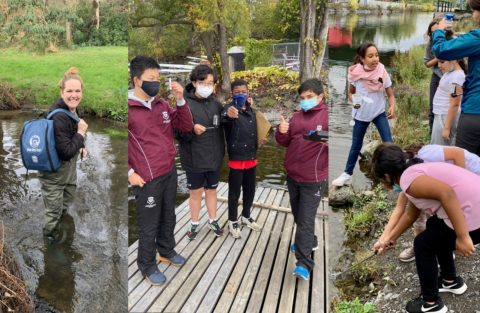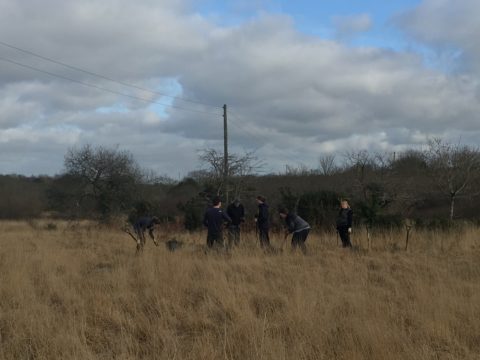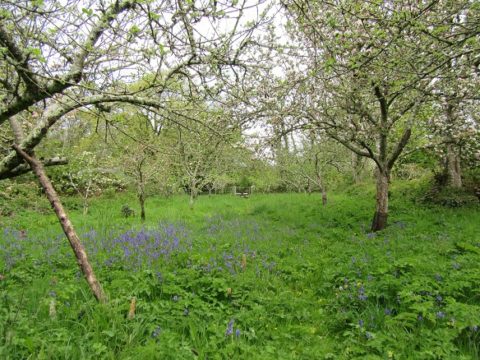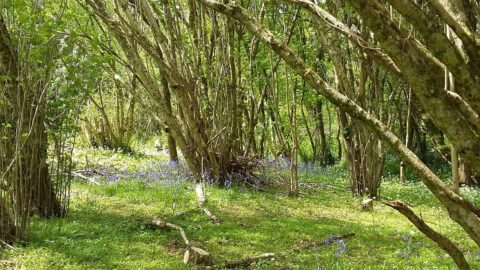We can’t ignore extreme weather and climate statistics. Climate crisis is happening. But there’s reason to be hopeful: community climate action is gaining momentum.
More than 35,000 world leaders, ministers, negotiators, community groups, businesses, international organisations, and media reps headed to COP28 to address the impact of climate change and share strategies to mitigate, adapt, finance, and collaborate on solutions.
The opportunity to act is limited. Governments around the globe have made commitments, the UK’s net zero emissions law is just one example. To reach these targets, all sectors need to get involved. And fast.
Businesses are taking meaningful action
We’re seeing some of the most promising commitments to climate action come out of the private sector. Big brands have launched major innovations to help get us closer to a sustainable future.
Here are a few corporate giving examples in a very long list that inspire us:
- Lego introduced its first blocks made from recycled plastics
- Patagonia released NetPlus® material made using 100% recycled discarded fishing nets, one of the most harmful plastic ocean pollutants
- Footwear competitors Adidas and Allbirds teamed up to create FUTURECRAFT.FOOTPRINT, adidas’s first shoe with <3kg carbon footprint
The Adidas and Allbirds collaboration is a perfect corporate giving example, showing what’s possible when organisations work together. The brands teamed up to develop a new solution that was a milestone in the sportwear space. Tim Brown, Co-Founder and Co-CEO of Allbirds captured the importance of working in partnership when he said:
“We believe that the challenge of solving climate change is the problem of our generation and solving it will not be done alone. We need to find new business models, new innovations and new ways of working together.” Tim Brown, Co-Founder & Co-CEO at Allbirds
At ActionFunder, we believe collaboration is key to unlocking businesses’ power to be a force for good. We see huge opportunity for businesses to collaborate with community groups to make real change happen, fast.
Community climate action groups are on the rise
Community climate action groups are popping up all around the country on a mission to create local solutions to solve our global crisis. They’re tackling the problem from multiple angles, agitating for change in policy, everyday behaviours and more.
Take a look around your local neighbourhood and you will see things like:
- community gardens
- urban farms
- grassroots food networks
- reuse, recycling and upcycling projects
- renewable energy schemes
- sustainable transport initiatives (think innovative public transport systems, e scooters, EV charging stations, and more)
Regional Environmental Change recently published a study on the impact of these local-led climate projects. It turns out they may be the best chance we have for making real change.
Why is that? We see four reasons at play:
- Community groups understand the real issues people are facing at a local level. They also get how many of those issues are affected by the climate crisis. So they’re better able to help people connect the dots and see how climate change is affecting daily life.
- Community groups speak the local language. They can cut through the noise of scientific and government jargon to communicate the real risks and consequences.
- Local organisations are providing real, actionable solutions that can be implemented day to day.
- Community organisations tend to be small-scale and very agile. They can act fast to deliver the solutions we needed to have in place yesterday.
Community groups are able to identify pressing local issues and provide solutions to be adopted in people’s day to day lives..
Business funding + community action = collective impact
Funding is the number one thing these community groups need to continue and increase their efforts. That’s where businesses come in.
At ActionFunder, we foster collaboration between the private and charity sectors by helping businesses to find and fund local non-profits. The results are a source of real hope for the positive impact we can achieve when we work together.
Here are 5 community projects tackling climate crisis, all funded by businesses through the ActionFunder platform.
Making a Splash! Water Testing on the River Wey

Project by: Zero Carbon Guildford
Funded by: Thames Water
ZERO (in partnership with the River Wey Trust, Water Rangers, and FreshwaterWatch) set up this project to help people realize how their livelihood is connected to England’s waterways and teach them practical freshwater conservation skills.
Thames Water funded them £2,000 to:
- establish an inclusive water monitoring program
- equip volunteers with water quality monitoring equipment
- host monthly water testing and educational events
- help the community understand the unique characteristics of their water bodies
- empower youth to grow their science and community skills
Waste Knot and Wot Nots

Project by: Youth Works Northamptonshire
Funded by: Sir Robert McAlpine
Waste Knot and Wot Nots is an alternative education and youth work programme built around sustainable consumption and production values. Students in the programme take waste products and revamp them into resellable goods.
Thanks to £2,500 funded by Sir Robert McAlpine, young people who participate build valuable skills like:
- furniture restoration
- bicycle maintenance
- online selling
- resilience
- how to support their community
Marsh Fritillary Butterfly Habitat Restoration

Project by: Kernow Conservation CIC
Funded by: South West Water
The marsh fritillary is one of the UK’s most threatened butterfly species due to habitat loss. This project focuses on protecting the remaining habitat and restoring former areas of habitat to save this species from extinction.
With £1,824 from South West Water, Kernow Conservation was able to expand the available habitat for the marsh fritillary 4x by:
- clearing land at Trelusback Farm, Penhalvean where a small population of marsh fritillaries already exists
- dredging a silted drainage ditch, removing larger trees, and leveling up the area
- raising and planting devil’s bit scabious plants
- providing more habitat for the butterflies to colonise next year
Cornish Community Orchard Bio-Blitz

Project by: Resilient Orchards Cornwall CIC
Funded by: South West Water
There’s been a 74% loss of traditional orchards across the South West. Orchards are very important. They protect and enhance biodiversity in our communities, and reduce food miles that negatively impact our environment.
Thanks to £2,000 from South West Water, Resilient Orchards Cornwall was able to:
- hire educational and science professionals at Budding Nature Cornwall to organise a bio-blitz and produce a final report on the state of traditional orchards
- secure community and school involvement
- promote report findings across the region
- increase awareness of the biodiversity of orchards
- improve public monitoring and identification skills
- get more people involved in community orchards
Protecting nature for community well-being

Project by: Dartington Recreation Association
Funded by: South West Water
Meadowbrook Park in Dartington includes 10 acres of neglected woodland, wet meadow, amenity green space, wildflower meadows, hedgerows, coppiced glades, and a brook. The Dartington Recreation Association (DRA) wanted to reinvigorate this land.
£1,950 donated by South West Water allowed DRA to:
- teach students at three local schools how to identify the different species of plants and animals that live in these habitats
- engage adults through a series of public events, like bat walks and plant identification sessions
- work with a local ecological company to produce a Management Plan for the site
- run practical conservation days through partnerships with schools, youth groups, families, and the wider community
Ready for your business to take climate action?
These projects were made possible by businesses partnering with non-profits. The result? Impactful, community-based climate action. Find out how ActionFunder can amplify your community engagement outcomes. Get a no-obligation demo of the platform.